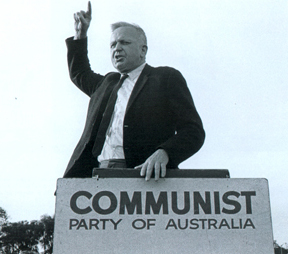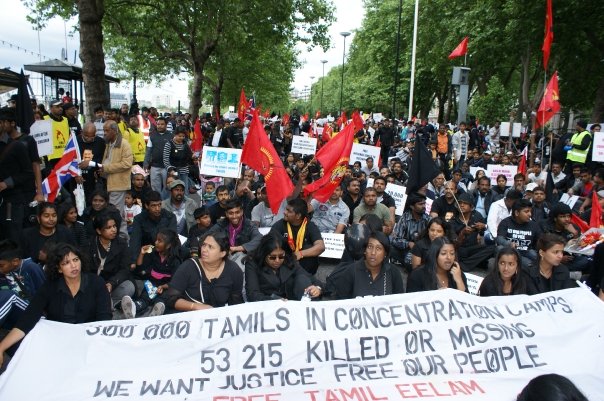New Anti-Capitalist Party of France: `With the people and workers of Iran!'

Statement by the Nouveau Parti Anticapitaliste (NPA, New Anti-Capitalist Party of France), translated by Carmel McGlinchey, Luke Weyland and Annolies Truman for Links International Journal of Socialist Renewal
Since June 13, the day after the rigged presidential election, millions of Iranians have gone into the streets with cries of "Down with the dictatorship!". The ferocious repression has already caused tens if not hundreds of deaths. Young people, women and the residents of the poorer areas who comprise the majority of the demonstrators have now been joined by the trade union movement.
The union of bus workers declared its solidarity, in asserting: "As long as the principle of free organisation and elections is not applied, all talk of social liberation and the rights of the workers is only a joke". The workers of Iran Khodro, the first car manufacturer in the country (with 60,000 employees), engaged in a strike while adding their demands for salary increases and the right to strike to the demands raised in the streets.
East Timor: Putting self-determination into practice

June 19, 2009 -- Mericio Juvinal dos Reis, or Akara as he is commonly known, is the executive director of Luta Hamutuk, a non-government organisation based in Dili, East Timor. Akara was a featured guest at the World at a Crossroads conference, hosted by Green Left Weekly, held in Sydney in April 2009. Vannessa Hearman spoke with Akara about East TImor’s ongoing struggle for genuine self-determination and development.
* * *
East Timor won its independence formally in 2002, after a long and bloody struggle against Indonesian occupation from 1975 to 1999. In 1999, a United Nations-sponsored referendum was held, in which the Timorese people voted to be independent from Indonesia.
Luta Hamutuk was set up in 2005 by a group of young activists, including Akara. Akara had been involved in pro-independence activities as a student in Indonesia. He was a member of the Timorese Socialist Party but left in 2003.

By Dave Holmes
[This talk was presented at the A Century of Struggle — Laborism and the radical alternative: Lessons for today conference, held in Melbourne, Australia, on May 30, 2009. It was organised by Socialist Alliance and sponsored by Green Left Weekly, Australia’s leading socialist newspaper. To read other talks presented at the conference, click HERE.]
Troops out of the Tamil homeland, release the prisoners!

Statement by Socialist Resistance (Britain)
Marta Harnecker: Ideas for the struggle #10 -- A strategy for building unity

[This is the tenth in a series of regular articles. Click HERE for other articles in the series. Please return to Links regularly read the next articles in the series.]
By Marta Harnecker, translated by Federico Fuentes for Links International Journal of Socialist Renewal
1. I have previously referred to the necessity of building unity among all left forces and actors in order to be able to group a broad anti-neoliberal bloc around them. Nevertheless, I do not think that this objective can be achieved in a voluntarist manner, creating coordinating bodies from above that end up as simple sums of acronyms.
2. I believe that this unity can emerge through concrete struggles for common objectives. And that is why I think that we can help create better conditions for this unity if we put into practice a new strategy of anti-capitalist struggle.
Iran: Government neoliberalism, repression fuel mass discontent

By Tony Iltis and Stuart Munckton
June 20, 2009 -- Since the June 12 Iranian presidential election, and the almost immediate announcement of a landslide victory for incumbent Mahmoud Ahmedinejad, Iran has been convulsed by mass protests alleging electoral fraud.
Despite savage repression, including mass arrests, beatings of protesters, attacks on universities and at least 22 deaths, hundreds of thousands of people have taken to the streets daily. The protests started in Tehran on June 13, but have spread throughout the country. The protesters have been calling for a re-run of the election, claiming that Mir-Hossein Mousavi won the elections despite the official results giving Ahmedinejad 64%.
The protests are occurring despite both Ahmedinejad and Mousavi emerging from within the same undemocratic regime and holding similar positions on many issues. Mousavi is presented in the Western media as a “reformer”, however he was prime minister during the 1980s when the regime committed some of its worst atrocities.
Comment: A question to the left on Iran: Can the people make history or not?

By Mike Ely
June 19, 2009 -- Kasama Project -- There is a self-deceptive politics (among some leftists) that seeks to prettify all kinds of reactionary forces that (for one reason or another) are in opposition to US imperialism — including Islamic reactionaries, Kim Jung Il, “hardline” revisionists of the Li Peng and Eric Honecker type and so on. And in the process they have a real, almost startling, hostility toward sections of the people who rise up in important if still-inarticulate ways.
My sense is that such politics arise from a despair over actually developing our own revolutionary forces — and a resigned assumption that we have no other alternative but to fall behind any forces (ugly, oppressive, reactionary or not) who (one way or another) seem to be on the United States' shit list.
This is not a uni-polar world with only one defining contradiction. Yes, we understand (and must understand) that the US acts as a central pillar of world capitalism … but it is hardly the only pillar or the only reactionary force.
Trade unions and New Zealand’s economic crisis

By Grant Brookes
Latin America: Manifesto of the First Continental Summit of Indigenous Women
Puno, Peru – May 27-28, 2009 – We, indigenous women gathered in the sacred lands of Lake Titicaca, after two days of discussions and deliberation raise our voices in these times when Abya Yala’s[1] womb is once more with childbirth pains, to give birth to the new Pachakutik

[This is the ninth in a series of regular articles. Click HERE for other articles in the series. Please return to Links regularly read the next articles in the series.]
By Marta Harnecker, translated by Federico Fuentes for Links International Journal of Socialist Renewal
1. Among the left, there continues to be a difficulty to work together while respecting differences. In the past, the tendency of political organisations, especially parties that self-declare themselves as parties of the working class, was always towards homogenising the social base within which they carried out political work. If this attitude was once justified due to the past identity and homogeneity of the working class, today it is anachronistic when confronted with a working class that is quite differentiated, and with the emergence of a diversity of new social actors. Today, we increasingly have to deal with a unity based on diversity, on respect for ethnic and cultural differences, for gender and for the sense of belonging of specific collectives.
South Korea’s rollback of democracy

By George Katsiaficas
Adam Smith was closer to Karl Marx than those showering praise on Smith today
